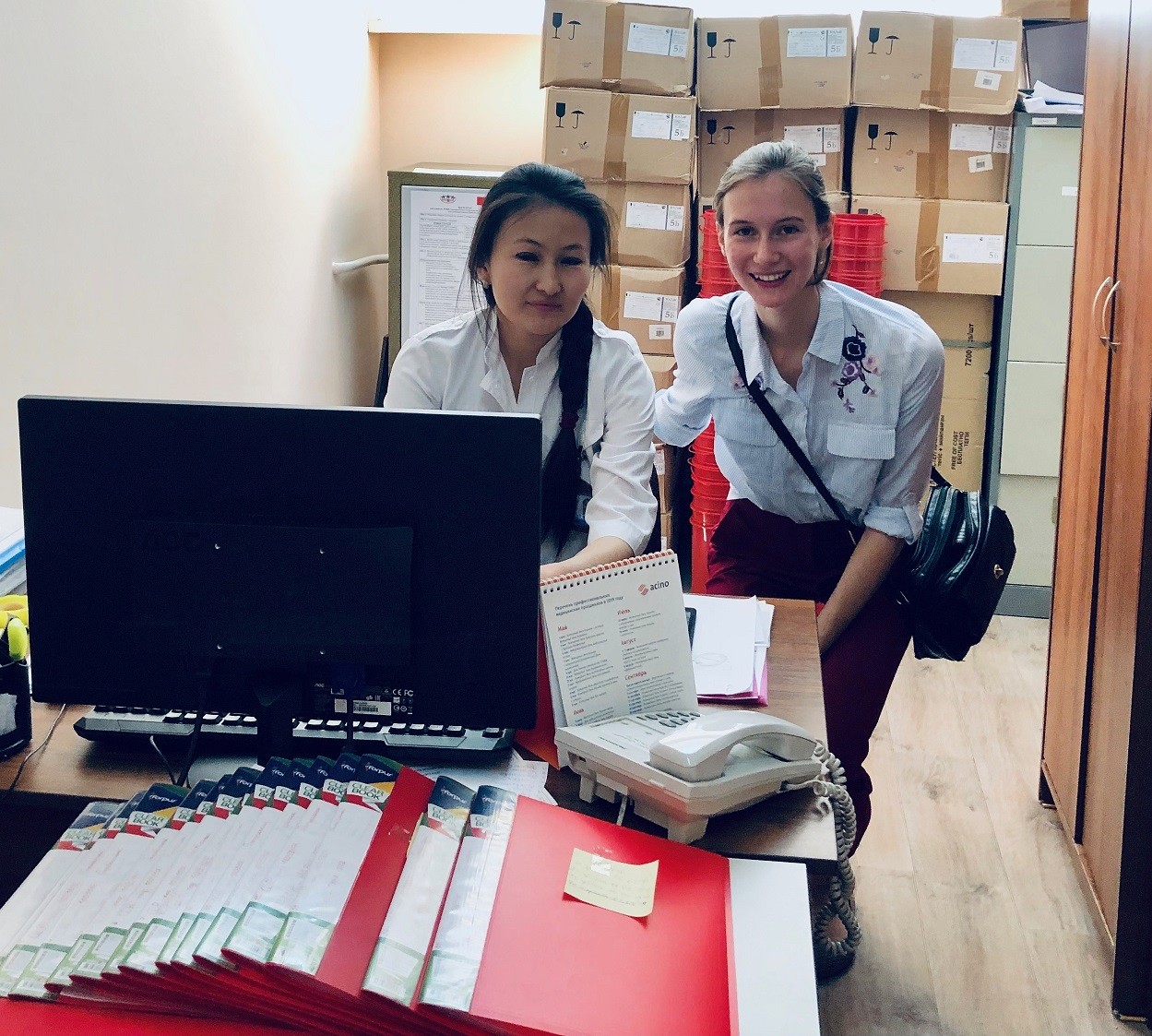Two students share their experience working with the Global Health Research Center of Central Asia
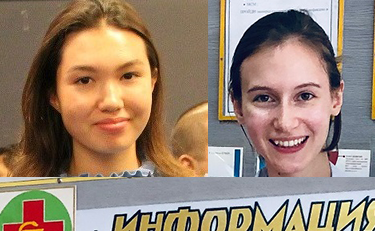
Our Global Health Research Center of Central Asia (GHRCCA) was established in 2007 to advance solutions to health and social issues in Central Asia and the surrounding region to improve the health and well-being of vulnerable populations including individuals who use drugs and their partners, sexual and gender minorities, and migrant workers from around the region. In service of this mission, GHRCCA provides select internship opportunities for students at Columbia University and beyond.
Aidana Maitekova
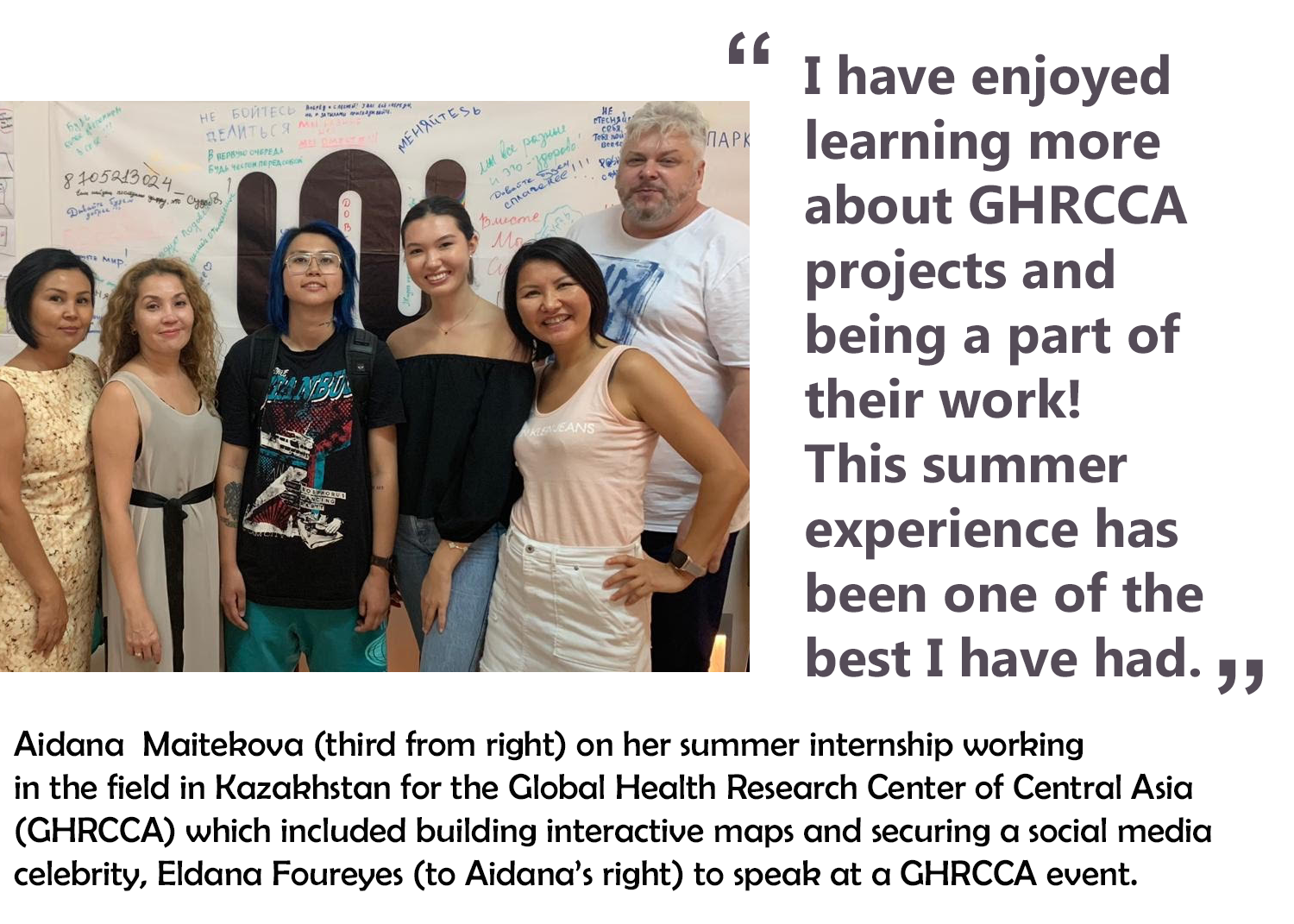
At GHRCCA, Aidana worked on several projects including BeOnline, which provides free HIV self-tests and increases HIV and STI risks awareness among men who have sex with men and the trans* communities. For the project website, Aidana created an interactive map showing locations where people ordered HIV testing kits. She also assembled the kits for delivery and wrote articles and authored questions and answers to help participants navigate the site.
Aidana also worked on Project UNI and “UNI Innovator Gate,” aiming to help hundreds of men of sexual and gender diversity through peer-led promotion of “HIV care continuum engagement” which includes anti-retroviral medication adherence and HIV testing. Aidana helped build the UNI project website, which was then transferred to another GHRCCA staff. The website can help build trust among the community who can now find comprehensive information about the program and soon read reviews or personal stories from other participants.
Aidana also helped plan the graduation celebration for UNI Innovator Gate by inviting a famous Kazakh Instagram/Youtube celebrity blogger who discusses controversial topics, Eldana Foureyes, to speak.
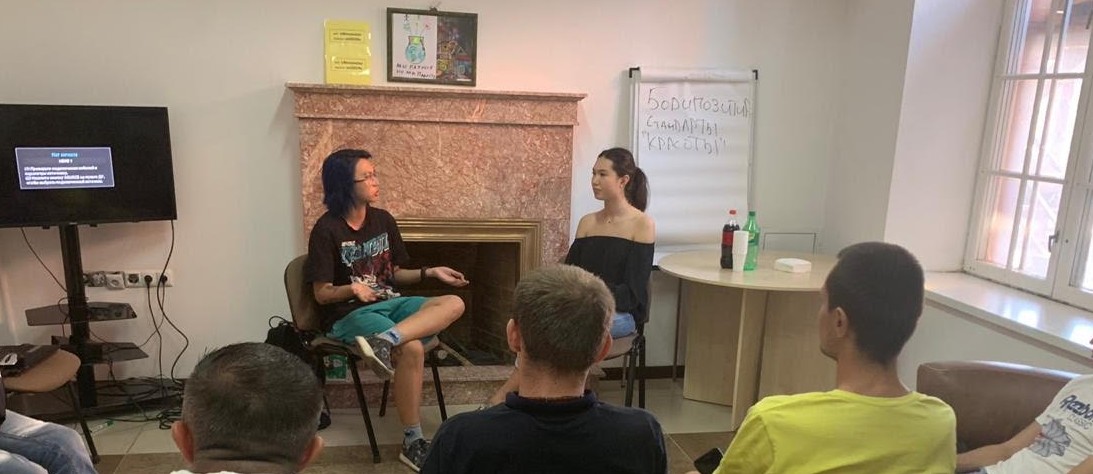
Discussions at the celebration included gender and being a part of the LGBTQ community in Kazakhstan where it is highly stigmatized. Of the experience, Aidana said,
I am very thankful for Sholpan, Assel, Gulnara, Denis and everyone else who have made this experience possible. I am hoping I can contribute and help with projects at GHRCCA again the next time I am in Almaty.
Sophia Kiselova
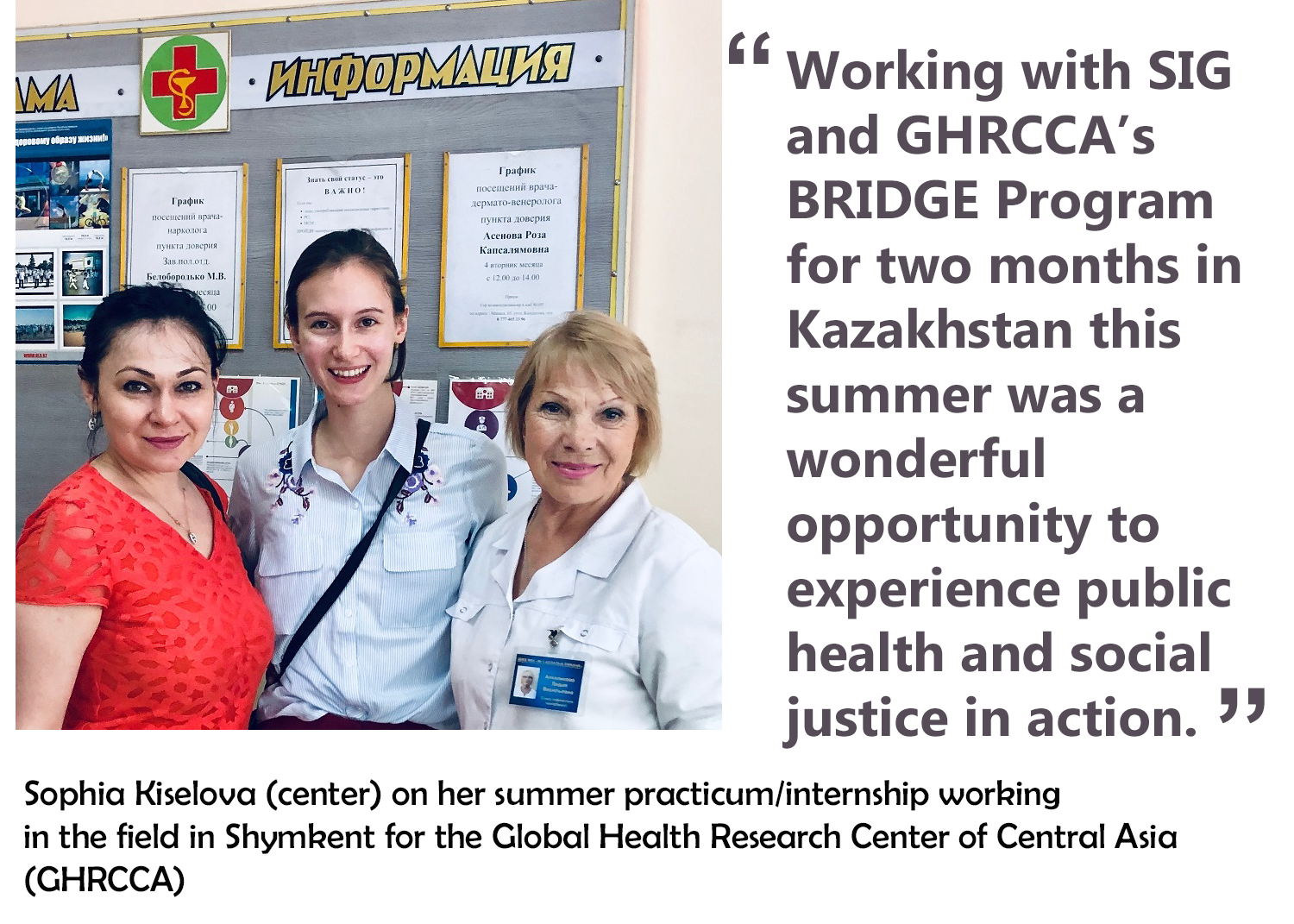
Above, Sophia with BRIDGE Staff and a nurse at a Trust Point in Almaty, Kazakhstan.
Sophia Kiselova, an MPH student at Emory University, had a summer practicum/internship at GHRRCA working with Project BRIDGE. BRIDGE uses peer-driven strategies to recruit people who inject drugs into needle syringe programs. It also integrates rapid HIV testing within these programs with harm reduction clinic nurses and links these individuals to HIV care.
Accordingly, Sophia, the BRIDGE staff, and their community partners aimed to identify and link people who were both HIV positive and had used injection drugs to consistent medical care. Sophia says it was very interesting to be a part of an intervention that was considerate of many socio-cultural nuances, such as stigma surrounding both HIV and drug use, and one which respected the knowledge and social weight of local residents who had formerly been injection drug users. She also says,
I am so grateful to the Bridge Program and GHRCCA for hosting me and allowing me this experience which helped me clarify my career and research goals.
